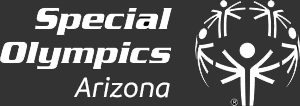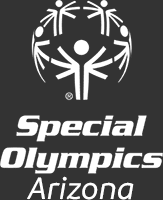What Causes Autism?
What Causes Autism?
There are many common developmental disorders that most of us would recognize, with autism spectrum disorder being one of the most common. Often referred to just as autism, or ASD, this is a complex developmental condition that is characterized by persistent challenges with social situations, communication, restricted interests, and repetitive behavior. There is a lot of variability in impairment within individuals with autism, which is why it is referred to as a spectrum disorder. After an autism diagnosis, one of the most common questions parents may ask is: “What caused this?” The Special Olympics Arizona team is breaking down that complex answer.
What Causes Autism?
While there is no one specific cause of autism, there is a large range of influences that are thought to play a part in this developmental disorder. There can be a number of different combinations of genetic, non-genetic, or environmental influences that may be the cause of autism spectrum disorder.
Genetic Factors
Research demonstrates that autism tends to run in families. Changes in certain genes increase the risk that a child will be born with or develop autism. If a parent carries one or more of these gene changes, they are at an increased risk of passing the gene change onto their child. This can happen even if the parent does not have autism. Other times, there may be a spontaneous gene change in an early embryo or in the sperm or egg that have come together to form the embryo. These genetic changes do not necessarily cause autism; however, they do increase the risk of it developing.
Environmental Factors
Research shows that there are certain environmental factors that can increase or even reduce the chances of a child developing autism. Some environmental factors that increase the chances of a child developing autism spectrum disorder include: increased parent age from either parent; pregnancy and birth complications, including premature birth, low birth weight, multiple pregnancies, or pregnancies spaced less than one year apart. There are environmental factors that decrease the chances of a child developing autism, most notably the use of prenatal vitamins containing folic acid.
Myths About What Causes Autism
There are a number of well-known myths about factors that may cause autism in your child. Dispelling these myths is important for the parents of individuals with autism and the individuals, as well as for the healthcare community at large.
Parenting and Neglect
During the mid-20th century, it was a common myth that parenting style or neglect of a child could cause autism. This myth and theory was abandoned in the 1970s and 1980s when scientists began to discover genetic and environmental factors that were causes in the development of autism. Cold, distant parenting or neglect can cause certain behaviors and reactions in your child, but none of this parenting will contribute to the development of autism.
MMR Vaccination
For some parents, their child’s development of autism will correlate with the timing of their vaccinations. Scientists have conducted extensive studies over the past two decades to determine if there is any link between these vaccinations and the development of autism, and they have determined there is no link. Vaccines do not cause autism, and any discussion of the correlation is categorically false.
Autism Risk Factors
The number of children diagnosed with autism spectrum disorder is rising, but it is unclear if this rise is due to better methods of detection, an increased number of cases in children, or both. Autism can affect children no matter their sex, nationality, or race, though there are a number of risk factors that can increase the risk:
- Sex of a child: Boys are about four times more likely to develop autism spectrum than girls are.
- Family history: Families with at least one child who has been diagnosed with Autism Spectrum Disorder have an increased risk of having another child develop the disorder. It is not uncommon for parents or relatives of children who have autism to have minor social or communication problems, or to engage in certain behaviors that are typical of the disorder.
- Other disorders: Children with certain conditions have a higher risk of developing autism than that of other children. Examples include Fragile X syndrome, an inherited disorder that causes intellectual problems, tuberous sclerosis, a condition in which benign tumors develop in the brain, and Rett syndrome, a condition affecting almost exclusively girls that causes slowing of head growth, intellectual problems and loss of purposeful hand use.
- Extremely preterm babies: Babies born before 26 weeks gestation have a greater risk of developing autism.
Is Autism Inherited?
A 2018-2019 study has shown that while autism is not completely inherited, it is caused by about 80% inherited genes, as opposed to environmental factors or random mutations. While environmental factors and random mutations still can contribute to the development of autism, the overwhelming majority of cases in this large scale study of families and relatives of individuals with autism found that it was inherited.
Can Autism Be Prevented?
Genes play the biggest part in the development of autism in children, and doctors are unable to predict during pregnancy whether or not your child will be born with autism. Autism is not preventable, but there are lifestyle changes you can make as a parent to reduce the risk of your child developing autism. Healthy living, including regular check-ups, a balanced diet, and exercise, as well as prenatal vitamins containing folic acid, will help you have a healthy pregnancy. Seeking treatment for previous health conditions, including celiac disease and PKU, will help you keep these conditions under control and avoid any complications related to your health. Avoiding alcohol and drugs during pregnancy is important. It is also important to get vaccinations, especially the rubella vaccine, prior to pregnancy. This will help avoid the risk of your child developing rubella-associated autism.



